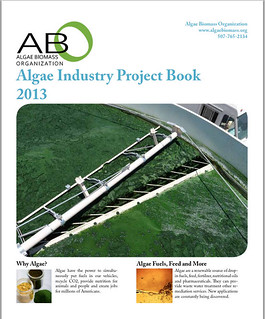The algae industry is moving faster than many people suspect. To help demonstrate how far along so many of ABO’s members are we recently created the Algae Industry Project Book, an illustrated guide of some of the most advanced algae facilities in the United States.
Inside you’ll find brief company descriptions and photos that demonstrate the impressive progress of the algae industry, as well as the products, jobs and other benefits we are creating.
It’s a great resource for anybody that needs to get up to speed quickly on algae’s potential to provide a sustainable source of fuels, feed, chemicals and countless other products.
As these projects progress, and as more come online, we will be adding updates to the book. If you are an ABO member with new progress to report don’t hesitate to get in touch!
Download a copy of the Algae Industry Project Book (PDF) and share it with your networks today.


